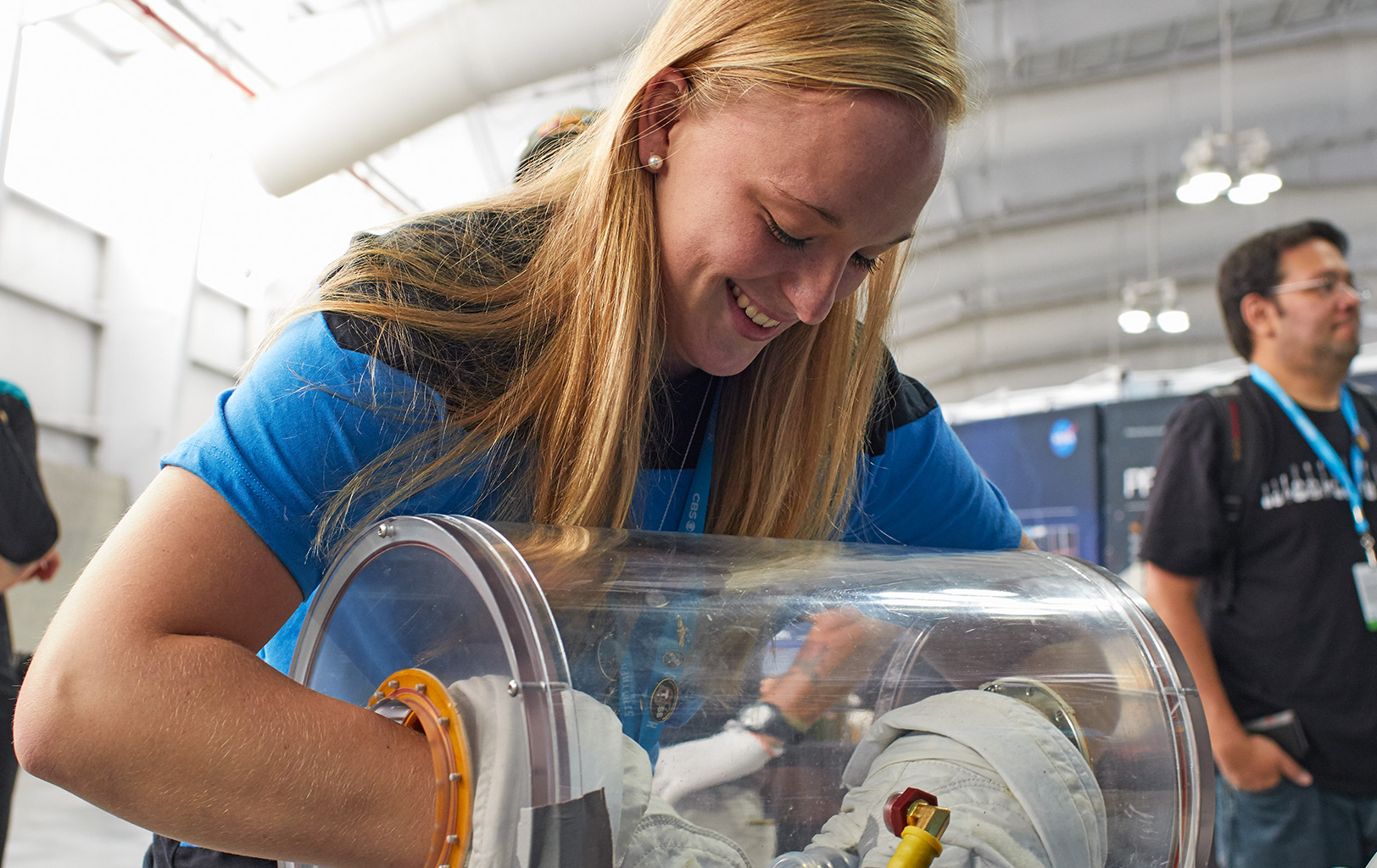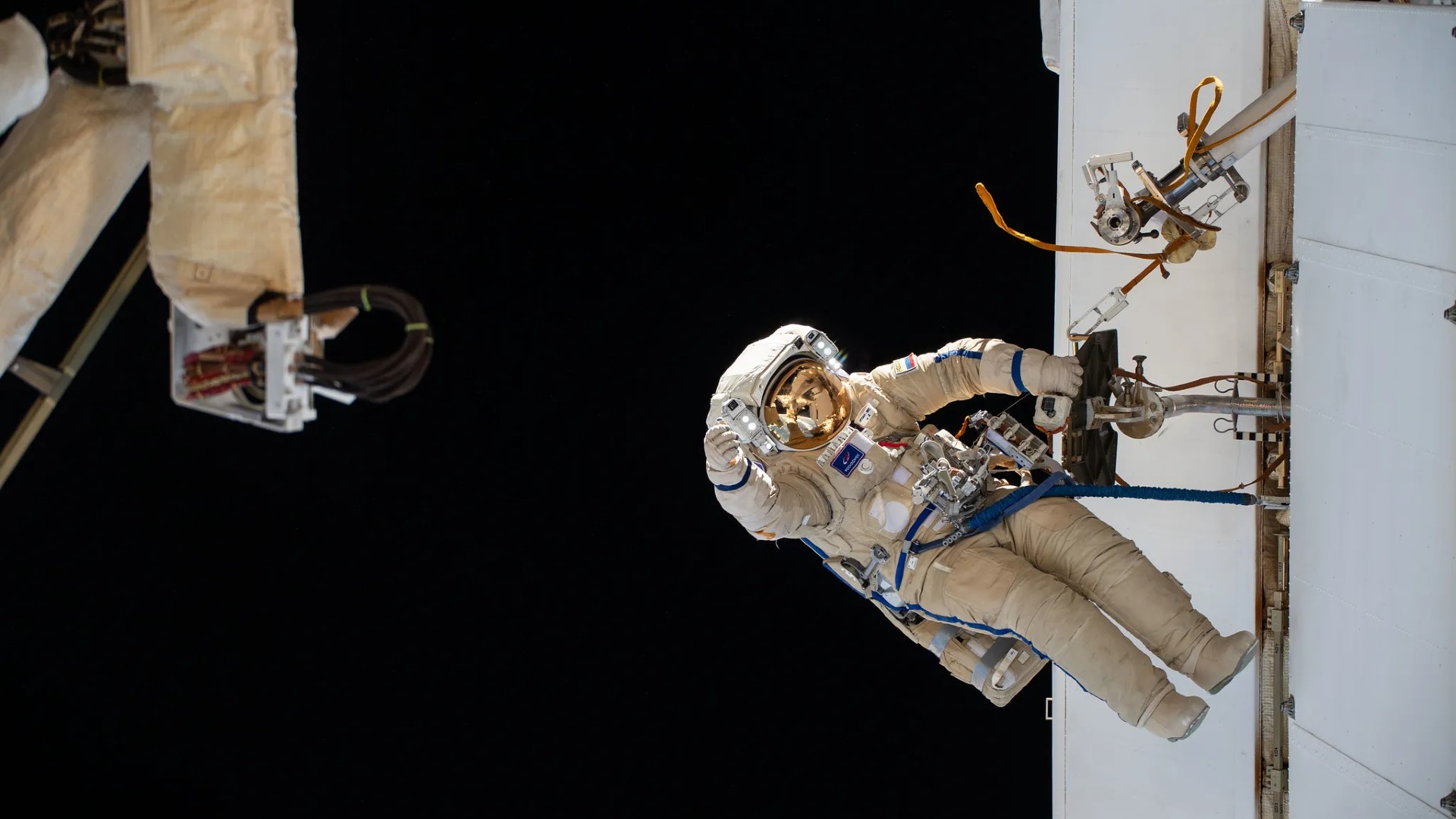World Space Week 2025 explores what it means to live beyond Earth
"Living in Space" isn't just about designing spacecraft or stations — it's about solving the complex challenges that come with turning space into a home.

Breaking space news, the latest updates on rocket launches, skywatching events and more!
You are now subscribed
Your newsletter sign-up was successful
Want to add more newsletters?

Delivered daily
Daily Newsletter
Breaking space news, the latest updates on rocket launches, skywatching events and more!

Once a month
Watch This Space
Sign up to our monthly entertainment newsletter to keep up with all our coverage of the latest sci-fi and space movies, tv shows, games and books.

Once a week
Night Sky This Week
Discover this week's must-see night sky events, moon phases, and stunning astrophotos. Sign up for our skywatching newsletter and explore the universe with us!

Twice a month
Strange New Words
Space.com's Sci-Fi Reader's Club. Read a sci-fi short story every month and join a virtual community of fellow science fiction fans!
The idea of making a home in space is rapidly shifting from possibility to reality.
That vision is at the heart of this year's World Space Week (WSW), celebrated annually from Oct. 4 to Oct. 10, with the 2025 theme: "Living in Space." First established by the United Nations in 1999, WSW has grown into the largest annual space event on Earth, marked by thousands of activities across more than 90 countries. The celebration not only highlights current topics in the space industry but also commemorates two milestones in history: The launch of Sputnik 1 on Oct. 4, 1957, and the signing of the Outer Space Treaty on Oct. 10, 1967.
Today, those anniversaries serve as a foundation for looking toward a future in which humans might live and work permanently in orbit, on the moon or even Mars. "Ten people live in space today, but this number will grow," Dennis Stone, WSW Association President, said in a statement. "With new space stations and increasing benefits from research in microgravity, the population in orbit will keep rising, and eventually people will live and work on the moon and Mars."
Each year, a unifying WSW theme helps guide discussions, outreach and education efforts. Past years served to highlight issues like climate change and entrepreneurship, but this year zeroes in on what it really means to build and sustain human presence off Earth. "Living in Space" isn't just about designing spacecraft or stations — it's about solving the complex challenges that come with turning space into a home. These range from developing closed-loop life support systems and radiation shielding to maintaining physical and mental health during long-duration missions.
At Space.com, we've explored many of these questions, including how NASA and its partners are testing lunar habitat designs, what long-duration missions can teach us about astronaut health, and how commercial space stations are being planned as successors to the International Space Station (ISS), highlighting how the path to living off Earth is already being laid.
All week long, schools, universities, space agencies and community organizations will host events such as hands-on workshops, interactive exhibits, online panels and art contests tied to "Living in Space." A wide range of global events are planned, from the Space Artwork Mosaic lighting up Piccadilly in London to NASA and Lockheed Martin's "Living on the Moon" online forum on lunar habitats. Crayola has also released educational resources for children to learn more about space.
A total of 2,617 events have been registered for this year's WSW, many of which are aimed to encourage participants to imagine the technologies and lifestyles that could support living off Earth in orbital stations or lunar habitats. The goal is to spark excitement while inspiring the next generation of scientists, engineers and explorers who may one day call space home. A full list of events, both local and virtual, can be found online.
Breaking space news, the latest updates on rocket launches, skywatching events and more!
Be sure to check back here over the coming days for our WSW coverage of global events, along with topics on what life in space might truly look like and the cutting-edge research shaping humanity's future beyond Earth.

Samantha Mathewson joined Space.com as an intern in the summer of 2016. She received a B.A. in Journalism and Environmental Science at the University of New Haven, in Connecticut. Previously, her work has been published in Nature World News. When not writing or reading about science, Samantha enjoys traveling to new places and taking photos! You can follow her on Twitter @Sam_Ashley13.
You must confirm your public display name before commenting
Please logout and then login again, you will then be prompted to enter your display name.
